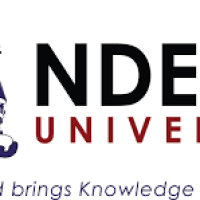Principal Accountabilities
• Support countries with supply chain emergency preparedness plans. The roles deploys, sometimes for extended periods, to lead and /or support the supply chain management aspects of complex emergency responses.
• Mobilises resources in the areas of procurement and logistics internally and/or externally depending on needs. The role liaises and collaborates closely with other sector and UN organisations (eg Logistics Cluster) on humanitarians supply chain matters.
• The roles maintains a network of deployable humanitarians supply chain and logistics experts.
• The role provides oversight to senior management on the status of supply and logistics, addresses bottlenecks and problems timely and creatively, whilst maintaining robust operational and quality standards and compliance.
• The role works closely together with the wider supply chain team, and may also be required to represent supply chain in technical response working/coordination groups.
• The role facilitates and supports the emergency preparedness discussions in Integrated Business Planning sessions in country as well as globally for critical humanitarian supply chains.
• The role provides guidance to CO on all supply chain emergency functions, processes and procedures and ensures that they meet the needs in all emergency responses.
• Inputs to the review of policy and procedures as they relate to emergency supply chain
• Ensures the Humanitarian dashboard (Power BI) Resource Hub (Onenet) are maintained and functioning, in collaboration with Analyst team
• Prepares reports and analyses data and supports remedial action planning on all aspects of Emergency preparedness
Experience and Skills
Essential
1. Supply Chain and Logistics Expertise: Demonstrable understanding of supply chain and logistics management, including procurement, storage, inventory management, transportation, and distribution.
2. Emergency Preparedness: Proficiency in developing and implementing emergency supply chain preparedness plans.
3. Resource Mobilisation: Ability to mobilise resources internally and externally, ensuring the timely delivery of supplies and services in complex emergency settings.
4. Collaboration and Networking: Strong collaborative skills and ability to maintain and develop a network of deployable humanitarian supply chain and logistics experts.
5. Problem-solving: Excellent problem-solving capabilities, addressing bottlenecks and logistical issues efficiently and creatively while maintaining high operational and quality standards.
6. Communication: Strong verbal and written communication skills, including the ability to produce high-quality reports and presentations for diverse stakeholders, including senior management and UN organisations.
7. Ability to analyse data and influence decision making
8. Cultural Competency: Ability to work effectively within diverse cultural contexts and sensitivity to local customs and norms.
Desirable
• Experience with planning processes such as Integrated Business Planning.
• Experience with supply chain systems design and implementation.
• Knowledge of master data structures.
• Knowledge and experience with supply chain data analytics tools such as Power BI.
• Understanding and experience with New Business Development, Award Management, Project Management and related systems (AMS and PPM Prime) is a plus.
Education and Qualifications
Essential
• Level 5 or higher qualification in Business, Procurement, Supply Chain Management, or a formal qualification in a related field or experience in Humanitarian emergency response, with relevant technical experience at managerial level.
Desirable
• A degree in Supply Chain Management, Logistics, Humanitarian Logistics, or a related field is preferred. Equivalent work experience can be considered in lieu of formal academic qualifications. Professional certification in logistics or supply chain management (e.g., APICS, CIPS, or equivalent) is highly desirable.
• Completion of relevant courses on emergency preparedness and humanitarian logistics (e.g., certification from the Logistics Cluster, Sphere Standards) is advantageous. Desirable: Proficiency in a 2nd Language such as French, Spanish or Arabic







